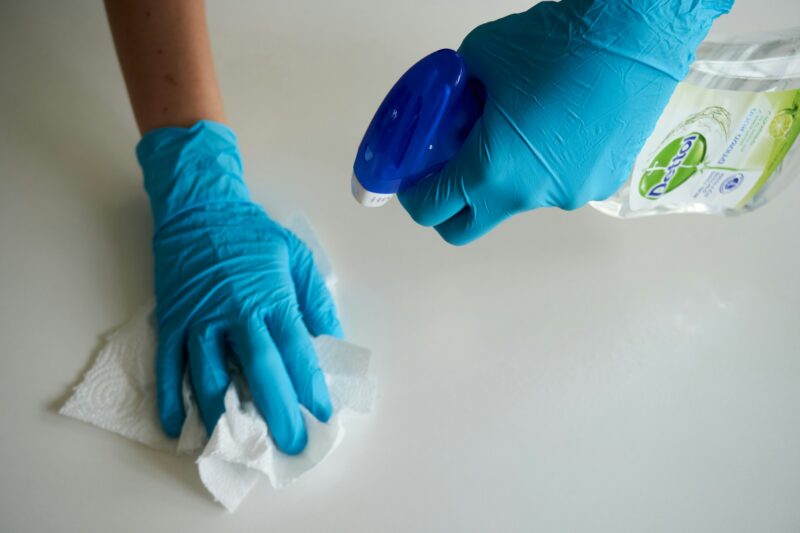Pests can be more than an inconvenience, they can pose health risks, damage property, and disrupt daily life. Knowing when to act can save you from more significant problems.
But how do you recognize when pests have turned from a small inconvenience into a major issue?
Below, we’ll guide you through ten key pest infestation signs, explaining when to call pest control services before things escalate.
1. Unexplained Property Damage
Chewed Wires, Wood, or Furniture
Property damage is one of the most noticeable signs of a pest problem. Rodents, for example, are notorious for gnawing on wires, wood, and furniture. Chewed wires aren’t just a nuisance—they can create fire hazards. Termites, on the other hand, might hollow out wood structures, weakening them over time.
Holes in Walls or Floors
Tiny holes or cracks in walls and floors could indicate pests like ants, mice, or termites. Investigate these signs promptly to prevent structural damage to your home or office.
2. Odd Noises in the Walls or Ceiling
Scratching and Scurrying
If you hear scratching, rustling, or scurrying sounds coming from walls, ceilings, or attics, this is often a sign of rodents or larger pests like raccoons. Noises at night? That’s usually a red flag, given that many common pests are nocturnal.
Buzzing Sounds
Unfortunately, that faint buzzing sound might not be your electronics malfunctioning—it could mean bees, wasps, or hornets are nearby, potentially nesting in or around your home.
3. Unpleasant Odors
Foul or Musty Smells
Pests often leave behind odors due to urine, droppings, or food they haven’t eaten. A strong musty smell could point to a rodent or cockroach problem.
Rotting or Sour Foods
If the food that’s stored right seems to rot quickly or smell unusual, pests like rats, mice, or even pantry moths could be contaminating it.
4. Finding Droppings
Identification of Pest Droppings
Droppings are one of the clearest infestation signs. Different pests leave behind telltale evidence. For example:
- Rodents leave pellet-shaped droppings, usually small and dark.
- Cockroaches deposit scattered black specks that are easy to miss.
- Termites drop tiny, wood-colored pellets, often near wood structures.
Hidden Dangers of Pest Waste
Beyond the unsightliness, pest droppings pose a health risk. Exposure to rodent urine or feces can lead to diseases like hantavirus, while insects can spread bacteria through food contamination.
5. Damage to Plants or Lawns
Chewed Leaves and Stems
If your garden plants look like they’ve been nibbled, pests could be the culprit. Certain beetles and caterpillars feast on vegetation, leaving chewed stems and leaves in their wake.
Dead Grass or Unhealthy Soil
Spot large patches of dead grass or disturbed soil? Keep an eye out for underground pests like grubs or moles. These pests can disrupt the roots of plants and destroy lawns if left unchecked.
6. Increased Presence of Pests
Seeing One Pest Often Means More
If you spot a cockroach, mouse, or any other pest in your home, assume there are more you can’t see. Pests rarely travel alone. A single pest sighting might indicate an active infestation that will only grow over time.
Swarms of Bugs
Swarming insects like termites, ants, or fleas can quickly overwhelm a space. The moment you notice swarms, it means the issue is already extensive, and professional pest control might be your last defense.
7. Unexplained Bites or Skin Irritation
Bed Bug Bites
Waking up with red, itchy welts on your skin might mean bed bugs have made a home in your mattress or furniture. These pests feed on your blood while you sleep, and infestations can rapidly spiral out of control.
Mosquito-like Bites Indoors
When you notice itchy bites resembling mosquito stings but haven’t been outside, you could be dealing with fleas or mites inside your home.
8. Nesting Materials in Unexpected Places
Shredded Paper, Fabric, or Insulation
Rodents like mice and rats gather paper, fabric, and insulation to create nests. Look for small piles of shredded material in attics, corners, or closets.
Buzzy Nest Construction
If you find circular nests made out of dirt or paper-like material, wasps or hornets could be built nearby.
9. Failed DIY Pest Control Attempts
Home Remedies Are Losing Effectiveness
If DIY pest control remedies (like pest sprays, traps, or bait) no longer work, it might be time for a more robust solution. Infestations that grow despite your efforts are best handled by professionals.
Recurring Problems
Did you eliminate pests only to have them return within weeks or months? Professional pest control ensures not only removal but prevention of future issues.
10. Ongoing Allergies or Respiratory Issues
What Pest Allergens Can Do
Unexplained allergies, sneezing, or even asthma symptoms could be linked to pests like cockroaches, dust mites, or rodent dander. Pest waste can exacerbate respiratory illnesses and reduce indoor air quality.
Tell-Tale Allergy Locations
Note if symptoms worsen when you’re indoors, particularly in basements or attics. This could strongly indicate the presence of pests.
Take Action Before the Problem Escalates
Pests are more than a nuisance, they’re a threat to your health, property, and peace of mind. When you spot any of these common pest problems, don’t delay. Acting early is crucial to prevent infestation growth and minimize damage.
If you’re wondering when to call pest control and want to ensure your home or business is protected, click here to schedule an inspection today.
Don’t wait for the signs to worsen, we’ll help keep your space pest-free and comfortable.


